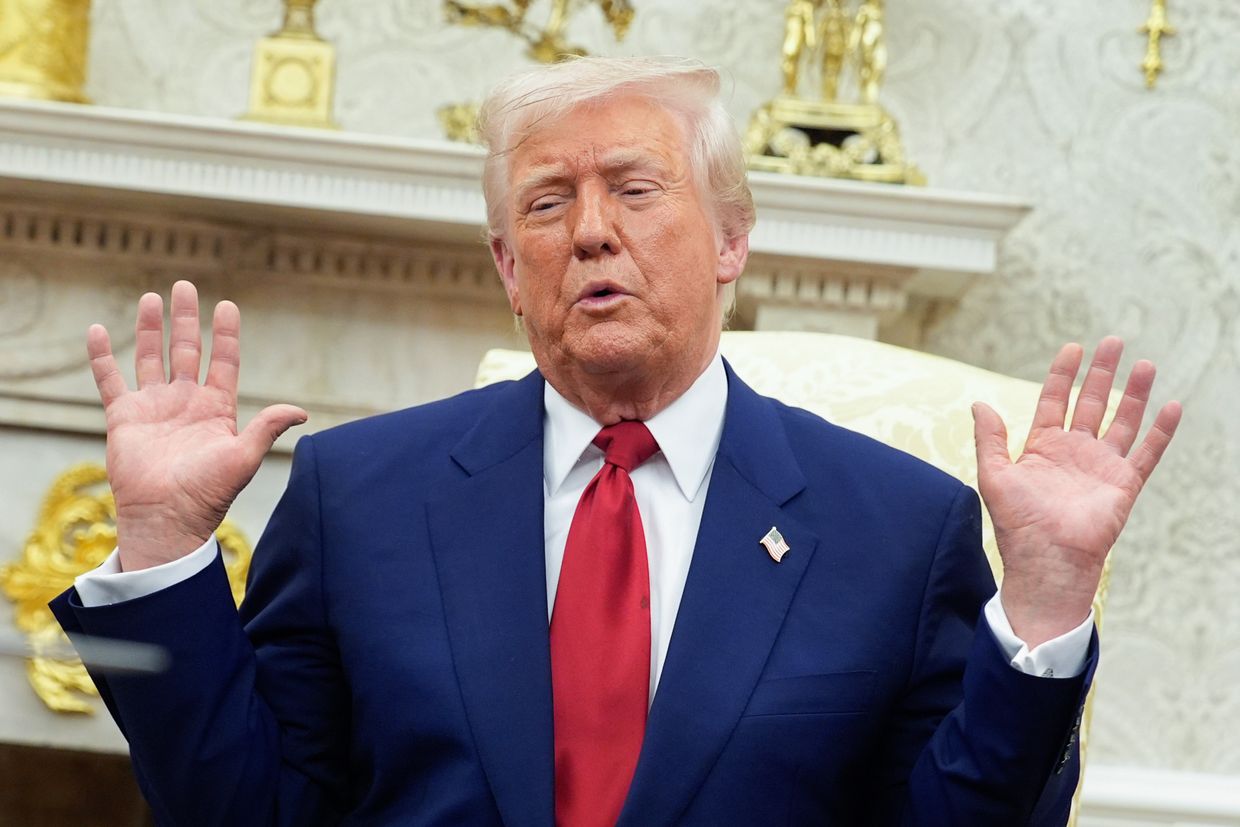Russia seeks sanctions relief, resource deal with US via negotiator Dmitriev, Zelensky says

Moscow is using its negotiator, Kirill Dmitriev, to lead discussions with the U.S. on resource development and a partial unblocking of frozen Russian assets, President Volodymyr Zelensky told journalists on April 9.
Dmitriev, who heads the state-controlled Russian Direct Investment Fund, met with U.S. officials in Washington on behalf of Russian President Vladimir Putin last week. Ahead of the trip, the Russian official said that Washington and Moscow have begun discussions on projects related to Russian rare earth minerals.
Dmitriev is communicating Moscow's proposals to Washington, using his Middle Eastern connections, Zelensky said. The Russian envoy previously played a role in backchannel diplomacy between Moscow and Trump when the latter was first elected in 2016.
"The scheme looks like it all leads to the unblocking of economic relations. They (Russia) want, for example, the lifting of sanctions against specific people who will be behind this or that direction, for example, Russian minerals, which they will offer them (the U.S.)," Zelensky said.
The Ukrainian president’s sanctions commissioner, Vladyslav Vlasiuk, said in late February that Russia is most interested in removing sanctions against Russian oligarchs and energy exports.
Western nations froze some 300 billion euros (around $300 billion) in Russian assets after Moscow launched its full-scale invasion of Ukraine in February 2022, with roughly two-thirds held in Europe.
According to Zelensky, Russia cannot fully unfreeze all its assets in the EU, but it could manage to release smaller sums between 2 and 5 billion euros ($2.2-$5.5 billion) through intermediaries among Middle Eastern leaders.
Previously, the president said that Moscow is pressuring foreign governments to help release the funds by offering deals involving high-tech goods such as aircraft construction parts.
The EU has already begun leveraging proceeds from frozen Russian assets to support Ukraine. Earlier on April 9, the bloc allocated another financial assistance tranche of 1 billion euros ($1.1 billion) as part of the G7 loan program for Kyiv.












